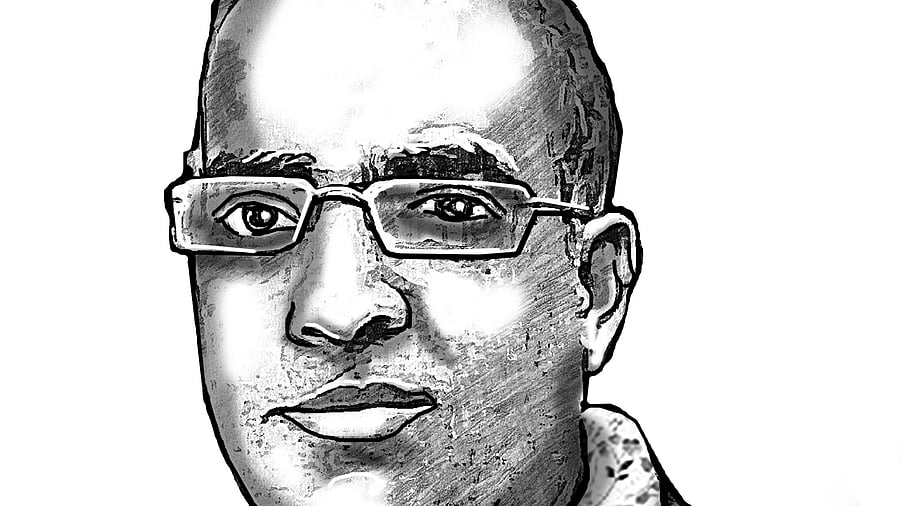
Ashwin Mahesh.
Credit: DH Illustration
It’s the season to read the Preamble to the Constitution of India. In a show of opposition to the BJP, various opposition parties are positioning themselves as ‘constitutionalists’, with the explanation that unlike the ruling party, they are guided by the 1950-onwards document that steers the nation’s course for all citizens. To this end, they have announced initiatives that would reinforce their claim, mostly by getting other people to read the Constitution. In schools, at public events, and so on.
But how strong is the claim? We’re now at the three-year anniversary of running BBMP without elected representatives. The same Constitution that is being proudly embraced by the political leadership also says a lot of things about elected self-governance in its 74th Amendment, passed more than 30 years ago. Can we read those pages too? The Constitution also says we are a socialist people, and political parties actually swear to this formally. Is that just for show? The book is also quite clear that the Supreme Court is the final arbiter of several things, but there are numerous rulings of the court on which nearly every state is dragging its feet. Can we read those pages?
Adherence and loyalty to the Constitution is a mandatory starting point for all of us, in any case. Making a special claim to it for oneself is a positioning strategy in the political arena. Which is alright. Parties do things like that all the time to get the attention of the public. But it is advertising, not the product. The original case is for citizenship of free people and for representative governments elected to serve them. This is the real metric on which we should be basing our claims.
On this count, there is still a long way to go. There is an overarching feeling in all aspects of governance that those in power rule over the public than serving them. It is nearly forgotten that ‘we, the people’ have given ourselves the Constitution and elected governments. This is seen not only in the actions of governments but also in how others -- the press, the judiciary, the markets, and even society -- respond to those actions. Those who are ruled either do not, or dare not, ask questions of the kings. This is totally at odds with what is in the Constitution, but governments have figured out ways to quibble about this ad nauseum in courts or avoid answering even the light questions from the media and the public.
The result of this mass self-delusion is that everything is for the public good -- or so the rulers proclaim -- but in practice, it is not. In the process, we have also got leaders who don’t think it is important to believe in the things they proclaim; it is enough to simply declare them.
What’s the way out of this? Kings don’t lead their subjects to liberty and equality, so it’s up to ‘we, the people’. The preamble is a good document to think about in this exercise. We usually think of it as a starting page for what we Indians set out to do after evicting the British, but it is more than that. It is more absolute than the Constitution itself, for example. ‘Liberty of thought and expression’ is unambiguously written into the Preamble, but in the Constitution and the laws, there are provisions that limit it. And in practice, many people are being dragged to court for things that they say.
Indira Gandhi also added ‘socialist’ into the preamble. But do we the people see socialism as an important anchor of how we wish to go forward? All political parties, while registering with the Election Commission, must declare their commitment to socialism -- even if they are proponents of other -isms as solutions to our development challenges!
I like the idea of reflecting on the Constitution. But we should do this as more than an exercise in taking political sides. The great book has served us well, and reined in many excesses. But leaders have also found their way around it when it suited them -- yes, even those who now declare their abiding faith in it. To be truly thankful for what we have gained from the founding of the Republic, we must think about it in much fuller measure.